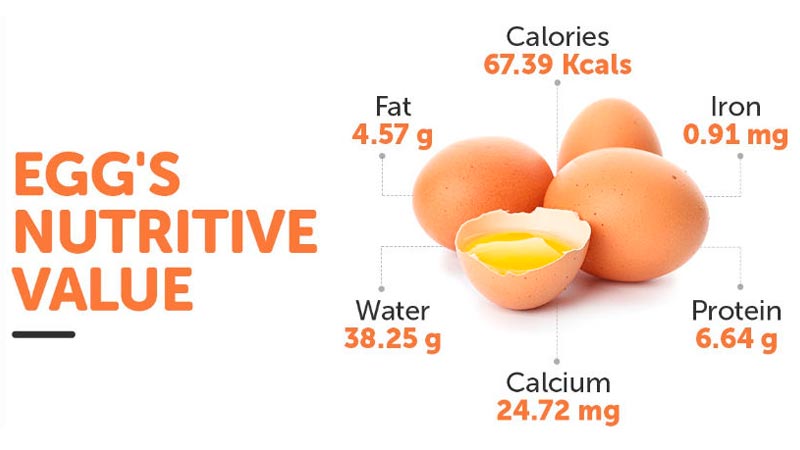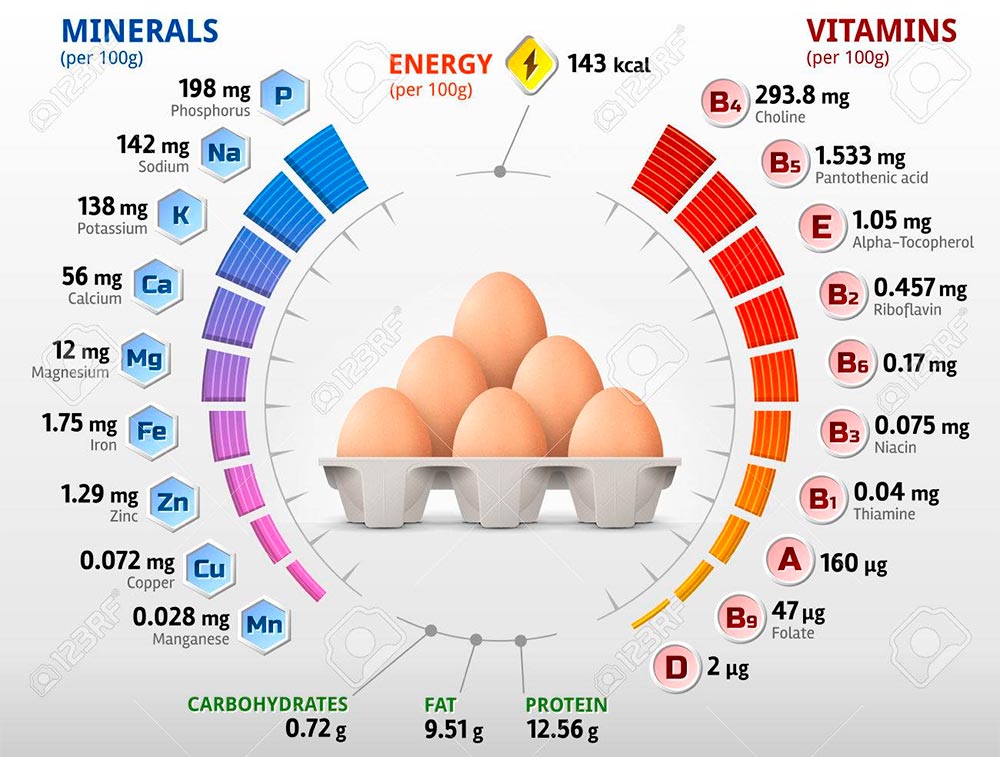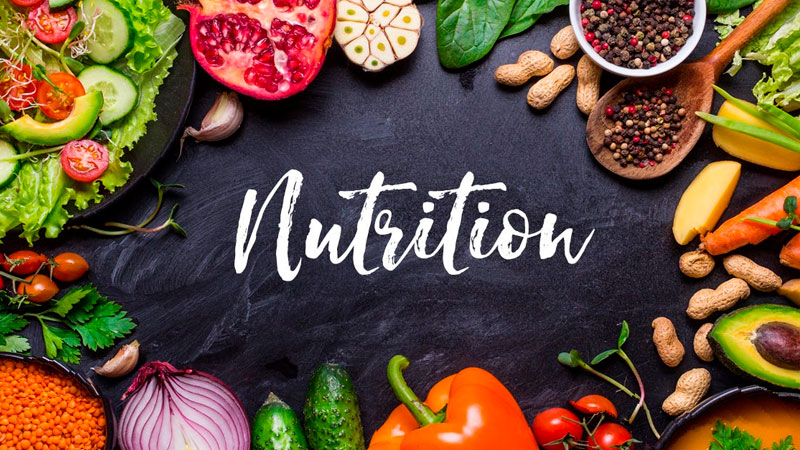Eggs are a valuable source of essential nutrients and a popular addition to many people's diets worldwide. In addition to being an excellent source of high-quality protein, eggs are also relatively low in calories compared to many other nutrient-rich foods.
Table of Contents
Eggs are a popular food choice for many people, whether it's for breakfast, lunch, or dinner. They are a good source of protein, vitamins, and minerals, but they also contain calories. In this article, we will be discussing the number of calories in four eggs.
Eggs are a nutrient-dense food that can provide many health benefits. They are rich in protein, which is essential for building and repairing muscles, as well as vitamins and minerals that support overall health. However, eggs also contain calories, which can add up quickly if you're not careful.
If you're trying to manage your weight or maintain a healthy diet, it's important to be aware of the number of calories in the foods you eat. Four eggs may seem like a reasonable serving size, but how many calories are in those 4 eggs?
In the following paragraphs, we will explore the calorie content of four eggs and what that means for your diet.
Caloric Content of 4 Eggs
Whole Eggs
Four whole eggs, including the yolks and egg whites, have a total caloric content of approximately 320 calories. Each whole egg contains about 80 calories, with the majority of the calories coming from the yolk. The yolk of a large egg contains about 55 calories, while the egg white contains only about 17 calories.
Egg Whites
If someone were to eat four egg whites, they would consume approximately 68 calories. Egg whites are a low-calorie, high-protein food that is often used by people who want to increase their protein intake while keeping their calorie intake low. Egg whites are also a good source of vitamins and minerals, including vitamin B2, vitamin B12, and selenium.
Egg Yolks
Egg yolks are the most caloric part of an egg, with each yolk containing about 55 calories. While egg yolks are high in calories, they are also a good source of essential vitamins and minerals, including vitamin A, vitamin D, and choline. Some people avoid eating egg yolks because of their high caloric content, but others believe that the health benefits of the nutrients in egg yolks outweigh the caloric cost.
In summary, four whole eggs have a total caloric content of approximately 320 calories, with each egg containing about 80 calories. Egg whites are a low-calorie, high-protein food that contains approximately 17 calories per egg white, while egg yolks are the most caloric part of an egg, with each yolk containing about 55 calories.
Egg Size and Calories

The size of an egg can significantly influence the number of calories it contains. Below is an approximate estimate of the caloric content of eggs of different sizes:
- Small Egg (up to 44g): About 54 calories
- Medium Egg (44-53g): Approximately 63 calories
- Large Egg (53-63g): Around 72 calories
- Extra Large Egg (over 63g): About 80 calories
As can be observed, a larger egg will naturally have more calories than a smaller egg due to the greater amount of nutrients it contains.
Nutrition Value
Here is the nutritional value table for 4 boiled eggs:
| Nutrient | Amount in 3 Eggs (Approx.) |
|---|---|
| Calories | 320 kcal |
| Protein | 28 g |
| Total Fat | 20 g |
| Saturated Fat | 6 g |
| Trans Fat | 0 g |
| Cholesterol | 860 mg |
| Carbohydrates | 2 g |
| Dietary Fiber | 0 g |
| Sugars | 2 g |
| Sodium | 280 mg |
| Calcium | 120 mg |
| Iron | 4 mg |
| Potassium | 320 mg |
| Vitamin A | 720 IU |
| Vitamin C | 0 mg |
| Vitamin D | 180 IU |
| Vitamin E | 2 mg |
| Vitamin K | 1 mcg |
| Thiamine (B1) | 0.3 mg |
| Riboflavin (B2) | 1.2 mg |
| Niacin (B3) | 0.1 mg |
| Vitamin B6 | 1 mg |
| Folate (B9) | 40 mcg |
| Vitamin B12 | 3 mcg |
| Biotin (B7) | 15 mcg |
| Pantothenic Acid (B5) | 4 mg |
Please note that values may vary slightly depending on the specific size of the eggs and the cooking method. This table is an estimate based on large boiled eggs.
Comparative Analysis
Eggs vs. Other Proteins
When it comes to protein content, eggs are considered to be one of the best sources. A large egg contains around 6 grams of protein, which is equivalent to the protein content in one ounce of meat, poultry, or fish. However, when compared to other protein sources, eggs are relatively low in calories.
For example, a 3-ounce serving of cooked chicken breast has around 140 calories and 26 grams of protein, while a 3-ounce serving of cooked salmon has around 175 calories and 19 grams of protein. On the other hand, two large eggs have around 140 calories and 12 grams of protein.
Impact of Cooking Methods
The way you cook eggs can also impact their calorie content. For example, a boiled egg has around 78 calories, while a fried egg has around 90 calories. Additionally, adding butter or oil to cook the egg can increase its calorie content.
It's also important to note that the calorie content of eggs can vary based on the size of the egg. A large egg has around 70-80 calories, while a jumbo egg has around 90-100 calories.
In summary, while eggs are a great source of protein, they are relatively low in calories when compared to other protein sources. The way you cook eggs can also impact their calorie content, so it's important to consider this when preparing them.
Health Benefits

Weight Management
Eggs are a good source of protein and can help with weight management. One large egg has about 70 calories and 6 grams of protein. Protein is known to help with satiety, which means that it can help you feel full for longer periods of time.
Research has shown that eating eggs for breakfast can help with weight loss. In one study, participants who ate eggs for breakfast consumed fewer calories throughout the day compared to those who ate a bagel for breakfast.
It's important to note that the way eggs are prepared can affect their calorie count. For example, an egg that is fried in oil will have more calories than an egg that is boiled or poached.
Heart Health
Eggs have gotten a bad reputation in the past for their cholesterol content. However, recent research has shown that dietary cholesterol doesn't have as big of an impact on blood cholesterol levels as previously thought.
In fact, eggs can actually be beneficial for heart health. They are a good source of omega-3 fatty acids, which are known to reduce inflammation and improve heart health. Additionally, eggs contain choline, which is important for brain and heart health.
It's important to note that people with high cholesterol levels or a history of heart disease should still be mindful of their egg intake. The American Heart Association recommends limiting dietary cholesterol to 300 milligrams per day for most people. One large egg contains about 185 milligrams of cholesterol.
Dietary Considerations
Keto Diet
For individuals on a keto diet, eggs are an excellent source of protein and healthy fats. However, it is important to keep in mind that eggs also contain some carbohydrates, which can add up quickly if consumed in large quantities. One large egg contains approximately 0.6 grams of carbohydrates, so it is important to track your intake carefully if you are following a strict keto diet.
Low Calorie Diet
Eggs are a great option for individuals on a low calorie diet, as they are low in calories but high in protein and other nutrients. One large egg contains approximately 72 calories, making it a filling and satisfying addition to any meal. Additionally, eggs can be prepared in a variety of ways, making them a versatile ingredient in many low calorie recipes.
It is important to note that while eggs are a healthy and nutritious food, they should be consumed in moderation as part of a balanced diet. Consuming too many eggs can lead to an increase in cholesterol levels, which can increase the risk of heart disease. It is recommended that individuals consume no more than one egg per day as part of a healthy diet.
Conclusion
In conclusion, eggs are a nutritious and versatile food that can be incorporated into a healthy diet. With only 70-80 calories per large egg, they are a great source of protein, vitamins, and minerals. The calories in eggs come primarily from protein and fat, with very little carbohydrate content.
Eating eggs can help with weight management, as they are filling and can reduce overall calorie intake. However, it is important to note that the way eggs are prepared can greatly impact their calorie content. For example, adding butter or oil to cook eggs can significantly increase their calorie count.
Overall, eggs can be a healthy addition to a balanced diet. It is recommended to consume eggs in moderation, with no more than one egg per day for those with high cholesterol levels. By incorporating eggs into a healthy meal plan, individuals can reap the benefits of their nutrient content while still maintaining a healthy calorie intake.
Eat well, live better!




